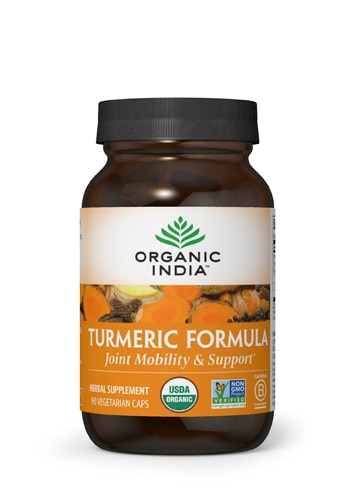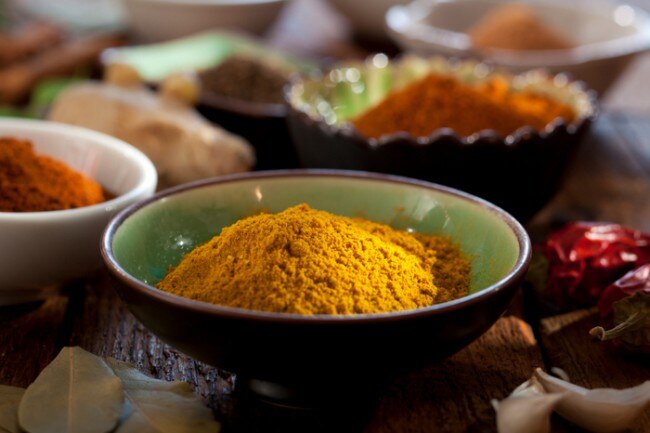Turmeric, a bulbous root belonging to the ginger family, is bright yellow and has a pungent, earthy taste. Its potent ability to help support a healthy inflammatory response, liver function and antioxidant activity makes it a promising super spice worthy of incorporating into your diet. Studies have linked its active ingredient, curcumin, with aiding joint comfort and circulation. In broader terms, turmeric's root-like nature acts as a fortifier that brings stimulating energy to the large intestine and encourages digestive ease.*
A familiar seasoning for Indian food lovers, turmeric gives curry its distinctive yellow color, and is an essential culinary spice across Asia. Its Sanskrit name, in fact, means “carry away illness.” In Ayurveda—an ancient Indian wellness system still in use today—turmeric has been used for a wide range of health purposes. Here are some of the ways this indigenous extract has modern applications.
Inflammatory response
Turmeric’s ability to support joint health is a stand-out when it comes to comfort. A 2006 study suggests turmeric could help support healthy joint function, and science continues to investigate its potential role in supporting the body’s overall inflammatory response.*
Liver Health
A growing amount of research supports the premise that curcumin can help promote healthy liver function, a key player in the body’s immune system. Bitter herbs such as turmeric may support digestion by encouraging a reflexive secretion of gastric juices that aid muscles of the digestive tract. Bitters can also support the body’s normal detoxification process by helping the liver to process incoming nutrients and filter impurities from circulation.*
Immune response
A growing body of studies indicates turmeric may help support healthy antioxidant levels, which means the body is better equipped to fight off free radicals, or compounds that can damage healthy cells, including those in the stomach and digestive tract (where an estimated 70 to 80 percent of the body’s immune cells reside).*
If all of turmeric’s bona fides are persuasive, consider making it a regular part of your diet. It’s too bitter to eat straight up, but when added to soup or stew or even rice, the flavor disperses and adds a subtle depth that you might come to love—if you aren’t a curry addict already.




